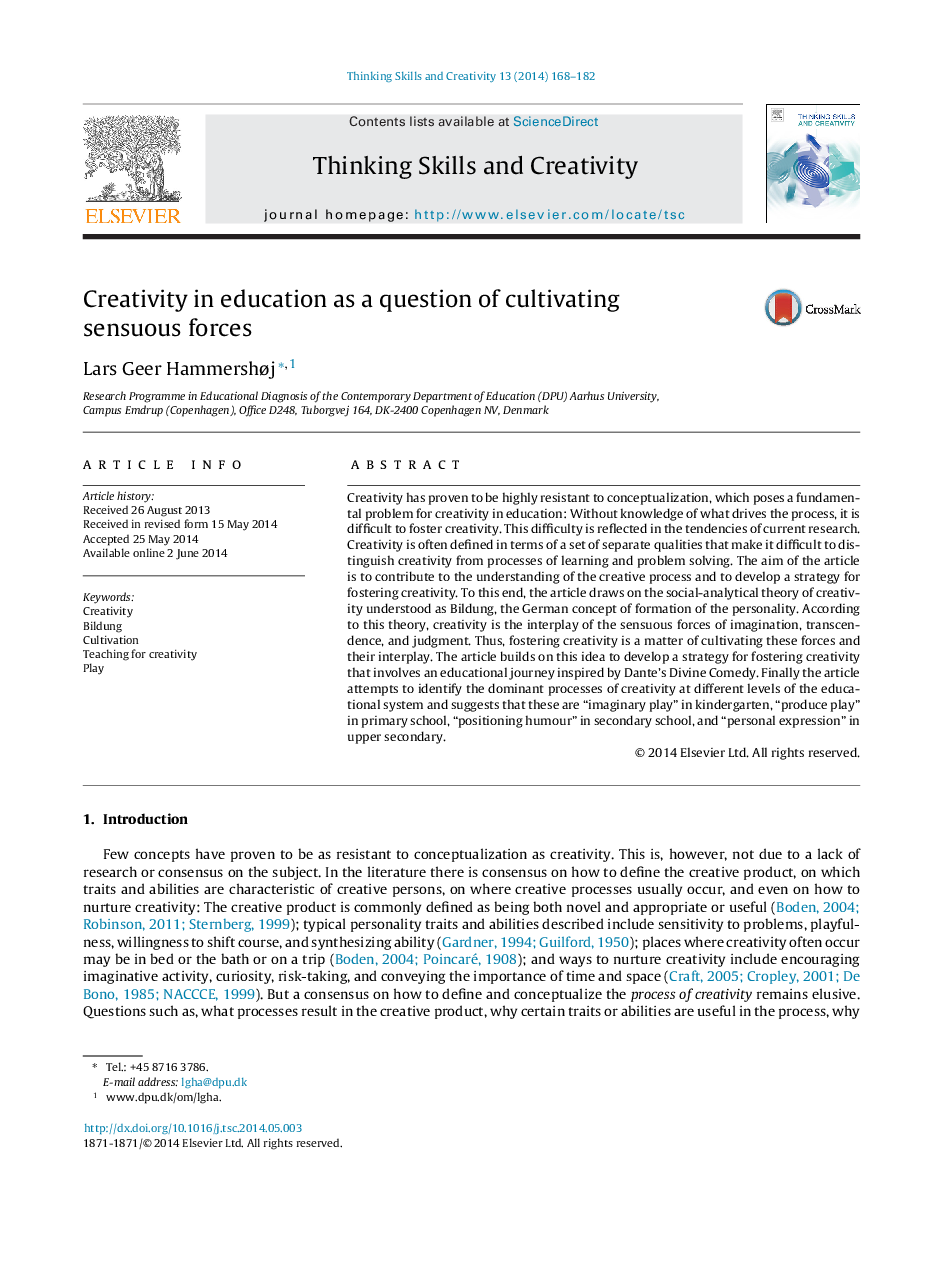| Article ID | Journal | Published Year | Pages | File Type |
|---|---|---|---|---|
| 6852125 | Thinking Skills and Creativity | 2014 | 15 Pages |
Abstract
Creativity has proven to be highly resistant to conceptualization, which poses a fundamental problem for creativity in education: Without knowledge of what drives the process, it is difficult to foster creativity. This difficulty is reflected in the tendencies of current research. Creativity is often defined in terms of a set of separate qualities that make it difficult to distinguish creativity from processes of learning and problem solving. The aim of the article is to contribute to the understanding of the creative process and to develop a strategy for fostering creativity. To this end, the article draws on the social-analytical theory of creativity understood as Bildung, the German concept of formation of the personality. According to this theory, creativity is the interplay of the sensuous forces of imagination, transcendence, and judgment. Thus, fostering creativity is a matter of cultivating these forces and their interplay. The article builds on this idea to develop a strategy for fostering creativity that involves an educational journey inspired by Dante's Divine Comedy. Finally the article attempts to identify the dominant processes of creativity at different levels of the educational system and suggests that these are “imaginary play” in kindergarten, “produce play” in primary school, “positioning humour” in secondary school, and “personal expression” in upper secondary.
Related Topics
Social Sciences and Humanities
Psychology
Developmental and Educational Psychology
Authors
Lars Geer Hammershøj,
